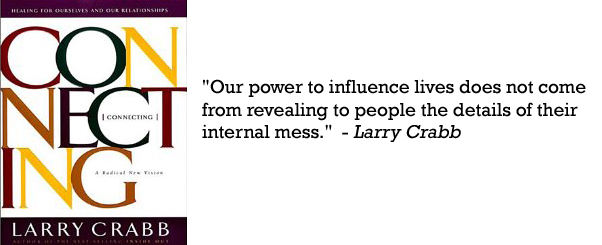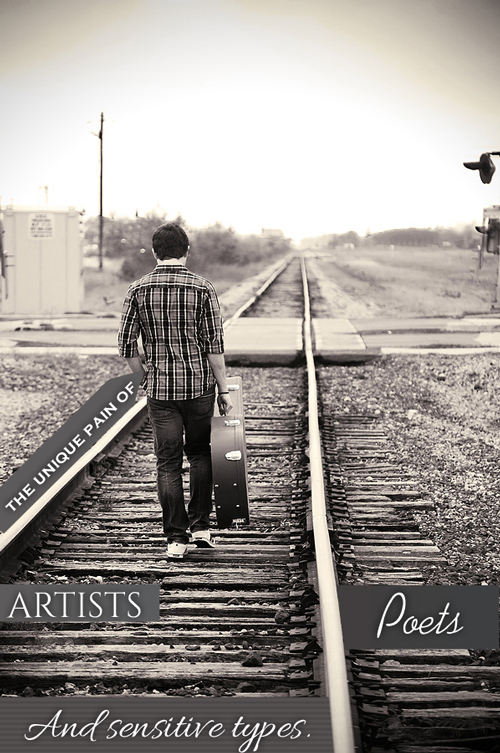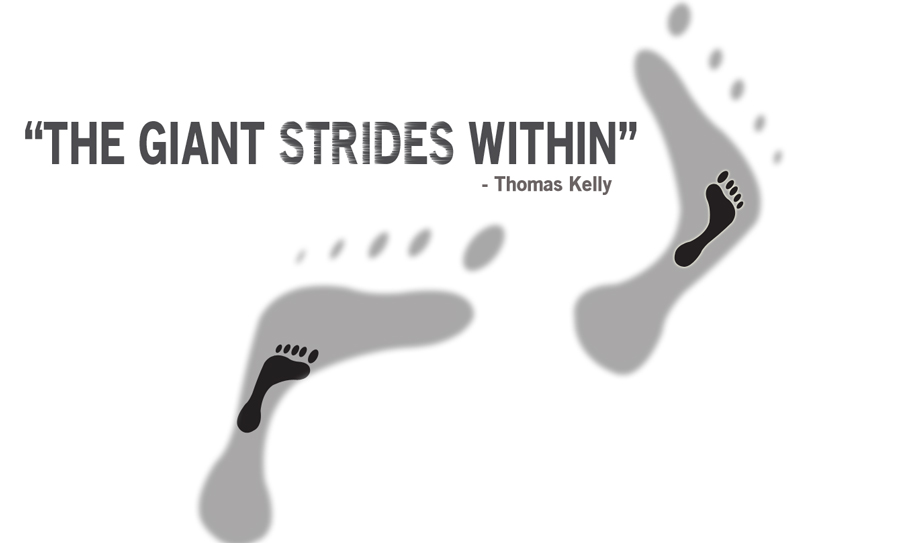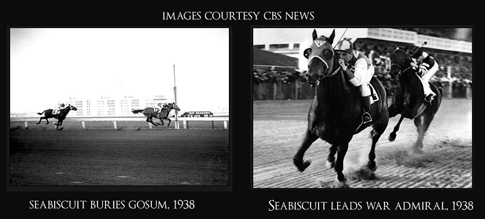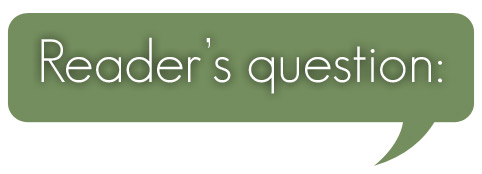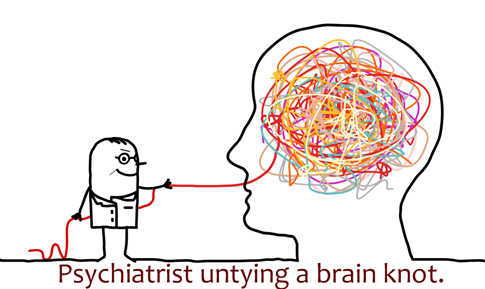What does powerful connecting look like?
 Saturday, November 22, 2014 at 9:26AM
Saturday, November 22, 2014 at 9:26AM Powerful connecting rarely happens in the Church, or anywhere, for that matter. Why do we often feel impotent when faced with the deep pain of another? Should we advise, refer them to counseling, try to listen more attentively?
What would you say to the following man who is courageous enough to share his anguish with you?
"This was a time of extreme anguish, during which I wondered whether I would be able to hold on to my own life. Everything came crashing down -- my self-esteem, my energy to love and work, my sense of being loved, my hope for healing, my trust in God...All had become darkness. Within me there was one long scream coming from a place I didn't know existed, a place full of demons." [1]
Would you simply try to listen to the man? Assure him of God's loving presence? Refer him to counseling? Suggest that God is trying to teach him perseverence? Expose his insecurities and hang-ups, his false beliefs?
The suffering man in our story, by the way, was Henri Nouwen; a spiritual giant to many who had authored 39 books by the time of his death in 1996.
Failure to connect
Larry Crabb, author of the groundbreaking book, Connecting, says that one reason we fail to connect powerfully with others in a way that could actually heal them is because we often operate with a "Therapeutic Model." Crabb calls this the "Treatment/Repair" Model, where we attempt to fix what's wrong in the other. In this model,
"The first step, of course, is to figure out what is wrong [diagnosis] and face it, then courageously work through the often long and painful process of coming to grips with the internal damage and learning to approach life in healthier ways [therapy]."
In order to fix what's wrong, we uncover the underlying psychological forces influencing their behavior. We analyze the hurting person's past, look into underlying patterns and suggest coping mechanisms and re-framing approaches to insure a healthier outcome for them. The people that offer the most insight become the person's heroes. Counseling often buys into this model; and though it can often provide insight and suggest more healthy, adaptive behaviors, it may not actually heal the person. Insight may not translate into healing.
Under this find what's damaged--fix what's wrong model, we might recommend that Henri Nouwen see a counselor in order to get at underlying damage, expose faulty belief systems, and recommend treatment for depression. We might even send him Scripture verses to encourage him so that he can believe there's a light at the end of his dark tunnel. But this model may yield little healing fruit. Crabb points out that, "Our power to influence lives does not come...from revealing to people the details of their internal mess."
What does powerful connecting look like?
Crabb rightly suggests that God does not often use a Therapeutic Model [Find and Fix What's Wrong] in order to heal us. Rather, God does three things:
1. "First, he provides a taste of Christ delighting in us -- the essence of connection; accepting who we are and envisioning who we could be."
2. "Second, he diligently searches within us for the good he has put there -- an affirming exposure; remaining calm when badness is visible, keeping confidence that goodness lies beneath."
3. "Third, he engagingly exposes what is bad and painful -- a disruptive exposure;" in order to uncover the goodness beneath the mess - "a goodness that is more defining of who we are than our badness...When we look at the bad, we must always be looking harder for the hidden good." [#3 should happen less as we use the approaches of #1 and #2.] Crabb adds, "A careful exploration of the redeemed heart does not sink us in a cesspool; it's more like mining for gold in a dirty cave."
We are not primarily damaged people: We are foremost saints, gifted with new-hearted vitality and power; a vitality that may be buried beneath a mess, but not subverted by it.
Did help come for Henri Nouwen?
So did Henri Nouwen find any who could help him? Yes, from an elderly priest who understood how to powerfully connect with him:
"During the most difficult period of my life, when I experienced great anguish and despair, he was there. Many times, he pulled my head to his chest and prayed for me without words but with a Spirit-filled silence that dispelled my demons of despair and made me rise up from his embrace with new vitality." [2]
Something powerful was poured out from the elderly priest into the broken-hearted younger man; arousing something buried, but alive and strong in Henri. That power was the quickening life of Christ Himself.
We connect well with others when we...
- give them a taste of God's delighting in them,
- relentlessly search for the God-given good urges beneath their pain and mess,
- refuse our impulses to fix what's wrong; and instead, take our cues from Jesus, asking, "How can I join You as You release what is most alive in me, pouring that Life into them, in order to release what is most alive in them?"
[1] The Inner Voice of Love: A Journey Through Anguish to Freedom, Henri Nouwen
[2] Our Greatest Gift, Henri Nouwen
All other quotations from Connecting, by Larry Crabb.
 17 References tagged
17 References tagged  Larry Crabb,
Larry Crabb,  connecting,
connecting,  pain,
pain,  suffering,
suffering,  therapy in
therapy in  New Covenant,
New Covenant,  new heart,
new heart,  suffering
suffering  Permalink
Permalink 
















